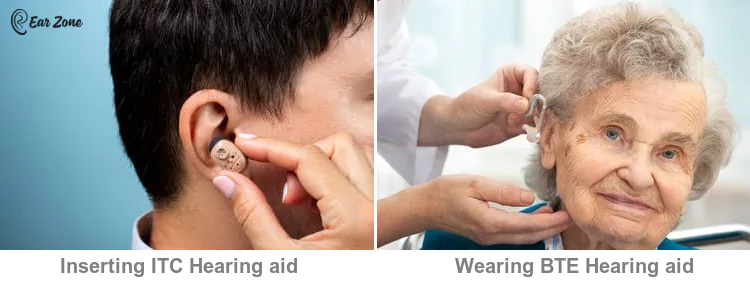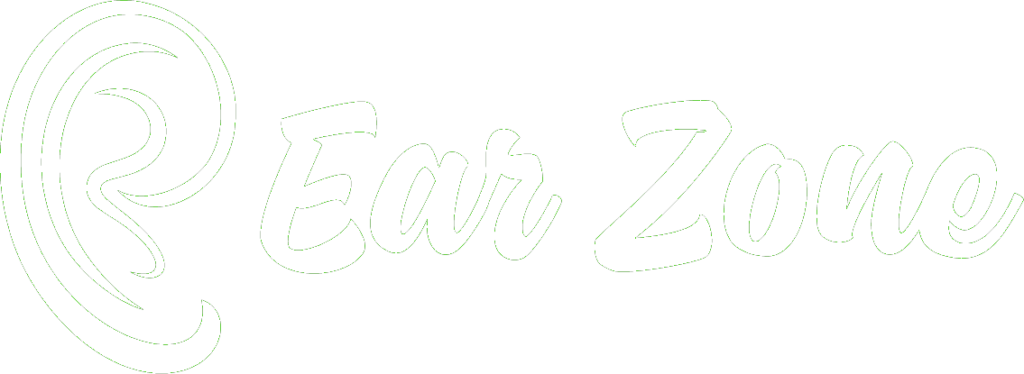
By Gabriel Yazbeck, BSc Audiology, MSc Audiology.
Know more about Gabriel Yazbeck
Are you struggling to get used to your hearing aids? You are not alone; getting used to hearing aids can be challenging. We do not want to be a spoilsport but would like to caution you that if it is your first time, then getting used to hearing aids can take a few weeks. But with the right tips, you can make the transition smoother and faster. In this article, we share 17 tips for the first-time hearing aid users to improve the overall hearing experience.
Are You Wearing a Hearing Aid for The First Time?
As a first-time hearing aid user, you should know that hearing aids cannot restore hearing. It is a device that makes sounds louder and clearer so you can hear better. Initially, you may feel overwhelmed by all the new sounds, the loudness, and the harshness, but these are the new hearing aid side effects and are temporary. As you adjust to your hearing aids, you will be able to communicate easily and feel more confident in social situations.
How Long Does It Take for Getting Used to Hearing Aids?
A new hearing aid user takes approximately a month for getting used to hearing aids. According to Catherine Palmer, Ph.D., Director and Professor, of Audiology at the University of Pittsburgh “After that much time, the brain has fully adapted to listening through the filter of hearing loss, so it’s not surprising that there is an adjustment period needed to get used to newly amplified sounds.”
Although, every individual’s experience with hearing aids can be unique, we have compiled a list of tips for first-time hearing aid users and the situations you may face while getting used to new hearing aids.
1. Follow the Instructions of Your Audiologist
Your audiologist is a qualified and experienced hearing aid fitter. Remember or note all the instructions on how to insert and remove your hearing aids properly, how to adjust the volume settings, and what to expect from your hearing aids.
2. Get Familiar with the Features of Your Hearing Aid
Your hearing aids come with a variety of settings with which you can experiment; your audiologist will brief you about them. It is important to learn how and when to activate a feature. Using the right feature in a situation will enhance your hearing experience.
3. How to Insert Hearing Aids Properly?
Inserting hearing aids properly is essential for optimal hearing performance. If the hearing aid does not fit well in your ear canal, you will hear a squealing sound or audio feedback, which will make it difficult to understand speech.

The method of inserting a hearing aid into the ear depends on the style or type of hearing aid. For example, a different technique or hand movement is required to insert a BTE earmold compared to inserting a CIC. Learn the trick to insert hearing aids properly from your audiologist and practice a few times before leaving the clinic.
Your hearing may start squealing or whistling if it is not inserted properly. You may face other hearing aid issues during the adaptation period. We advise you to read our blog on hearing aid complaints and how to fix them.
4. Start Using Your Hearing Aids in The House
You may be overwhelmed by the loud unbearable sounds as you step out of the silent clinic into the noisy street. Do not panic; this is one of the new hearing aid side effects. You can switch to “speech in noise” mode to reduce the background noise. If the sound is still intolerable, feel free to take them off and put them back in the case. Once you are home or in the office, wear your hearing aids again, the listening experience will be more comfortable.
5. Start Wearing Your Hearing Aids in a Quiet Room
If your house is on main street and the external noise still bothers you, move to the quietest room in the house. Similarly, if traffic noise on your way to the office makes you uncomfortable, use your hearing aids after reaching your office.
6. Does Wearing Hearing Aids Feel Strange?

Initially, it does feel strange, but it’s a matter of getting used to new hearing aids. You will not notice them as you gradually become accustomed to them.
Explore and get familiar with the faint sounds you now hear and couldn’t hear earlier. The hissing of the air conditioner, door shutting, or doorbell ringing.
7. Practice With Your Hearing Aids
Practice with your hearing aids during your free time. Listening practices or listening activities train the brain to adapt faster. Some of the listening exercises are:
• Reading aloud: Read books, newspapers, or magazines aloud with your hearing aids on. This will help you become accustomed to your own voice.
• Listen to audiobooks: Listen to podcasts or audiobooks, which will improve your comprehension. Read the printed version of the audiobook if you are missing some words.
8. How Many Hours A Day Should You Wear Hearing Aids?
Wear your hearing aids as much as possible; the more you get used to your hearing aids, the more comfortable you will be. Initially, the overbearing sounds may stress you, take breaks, and increase usage over the days as per your comfort level.
9. Why Does My Voice Sound Different?
Not recognizing one’s own voice is the biggest shock. As your hearing aid has been programmed to boost certain frequencies to compensate for your hearing loss, the tonal quality may have changed.
In addition, when you hear yourself speak, the vibrations of the voice box in your throat reach the ear through the cranium or skull; this adds to the voice heard externally, making your voice sound rich and pleasant. Hearing aid users hear more of the amplified sound through the hearing aid and less of bone-conducted sound, hence the difference in your own voice.
10. Why Does My Own Voice Echo?
Hearing aid echo problems are common, as your ear canal is blocked with the earmold or hearing aid, The plugged ear causes an occlusion effect. Sound waves hit the wall of the ear canal or the eardrum and bounce back; the sound cannot escape because your ear is plugged, and this causes an echo.
Discuss with your audiologist; if possible, your audiologist may consider providing a vent or open fit hearing aids.
11. Am I Too Loud or Speaking Normally?
Your voice sounded soft because of your hearing loss. With the new hearing aid, your voice is amplified and you may feel that you are speaking loudly. Request feedback from your family and friends on the ideal loudness level, and adjust your speech accordingly.
12. Identify and Get Familiar with the Sounds Around You
Due to your hearing loss, your brain no longer identifies soft background sounds like the hum of an air conditioner or water running in the bathroom. With your new hearing aids, you will hear these sounds again; however, they will sound loud and strange at first. In a few days, you will be comfortable as your brain adapts to new sounds.
13. Start With a One-To-One Conversation
Initially, it may be difficult to hear clearly or identify the speaker in a group discussion or in noisy surroundings. Practice one-to-one conversation and do not hesitate to request the person to repeat if you miss a few words. The more you practice, the more comfortable you feel with your hearing aids and you will be much more comfortable in group conversations.
14. Watch Television with Your Hearing Aids On
Understanding television dialogue is challenging. Avoid increasing the volume as it may disturb others in the room, Watch TV with the subtitles or captions on, you will hear better as you get used to hearing aids, or use a Bluetooth streaming device.
15. Do Not Change the Volume Setting Too Often
Avoid fiddling with the volume settings, your audiologist has set the ideal volume as per your audiogram. A slight increase in volume helps if you are in a quiet environment but rarely helps in situations with high background noise. You should remember that increasing the hearing aid volume may decrease clarity, as it distorts the sound.
16. Take a Follow Up Appointment with Your Audiologist
While getting used to hearing aids takes time, you can speed up the adjustment period by discussing problems with your audiologist. Are earmolds or hearing aids too tight and hurt? or are they loose and keep falling off? Is the squealing sound or some irritatingly loud sound bothering you? or are you unable to hear some sounds? The adjustments to your hearing aids is personalised, your audiologist can adjust your hearing aids and provide solutions to the problems you may come across.
17. Additional Tips for Getting Used to Hearing Aids
- Be Patient and Positive: Don’t get discouraged if you feel you are not making much progress. Keep using them, your brain will soon adapt to the new sounds and situations. You will gradually overcome the challenges, and your comfort level will increase with every passing day.
- Ask for Help: Do not hesitate to ask for help and feedback from family and friends. Request them to face you and speak slowly and clearly.
- Consult your Audiologist: Your audiologist is a qualified health practitioner and has been trained in the medical aspects of deafness and programming of hearing aids.
- Educate Yourself: Read about hearing loss and hearing aids,
- Regular Maintenance: learn regular hearing aid care and maintenance routine. Learn to change batteries and clean earmolds to prevent earwax blockages. Read our article on the best hearing aid maintenance guide – Checklist and Tips.
We understand that wearing a hearing aid for the first time is not easy, but the above hearing aid tips and tricks will help you get used to your hearing aids faster. The tips for hearing aid users can help you overcome any challenges and make the most of your hearing experience. You may also come across people suggesting that hearing aids cause hearing loss, this is not true. Know why do people feel that hearing aids cause deafness?
Every person’s experience with hearing aids can be unique as clarity and speech discrimination depends on may factors. Do not hesitate to consult your audiologist for personalized hearing aid adjustments and guidance.
If you want to share your thoughts or stories about getting used to hearing aids, please leave a comment below.
References:
1. https://www.aarp.org/health/conditions-treatments/info-2022/hearing-aid-tips.html
2. https://rnid.org.uk/information-and-support/hearing-loss/hearing-aids/getting-used-to-hearing-aids/tips-for-getting-used-to-hearing-aids/





I appreciate you reminding me that correct fitting of hearing aids is necessary for best possible hearing. As you mentioned, if they don’t fit properly, there will be a squealing sound. I’ll be sure to share this with my mother to keep in mind, as she has been considering purchasing one since she has been experiencing difficulty hearing. I’ll also look into experts who can assist her in obtaining one.